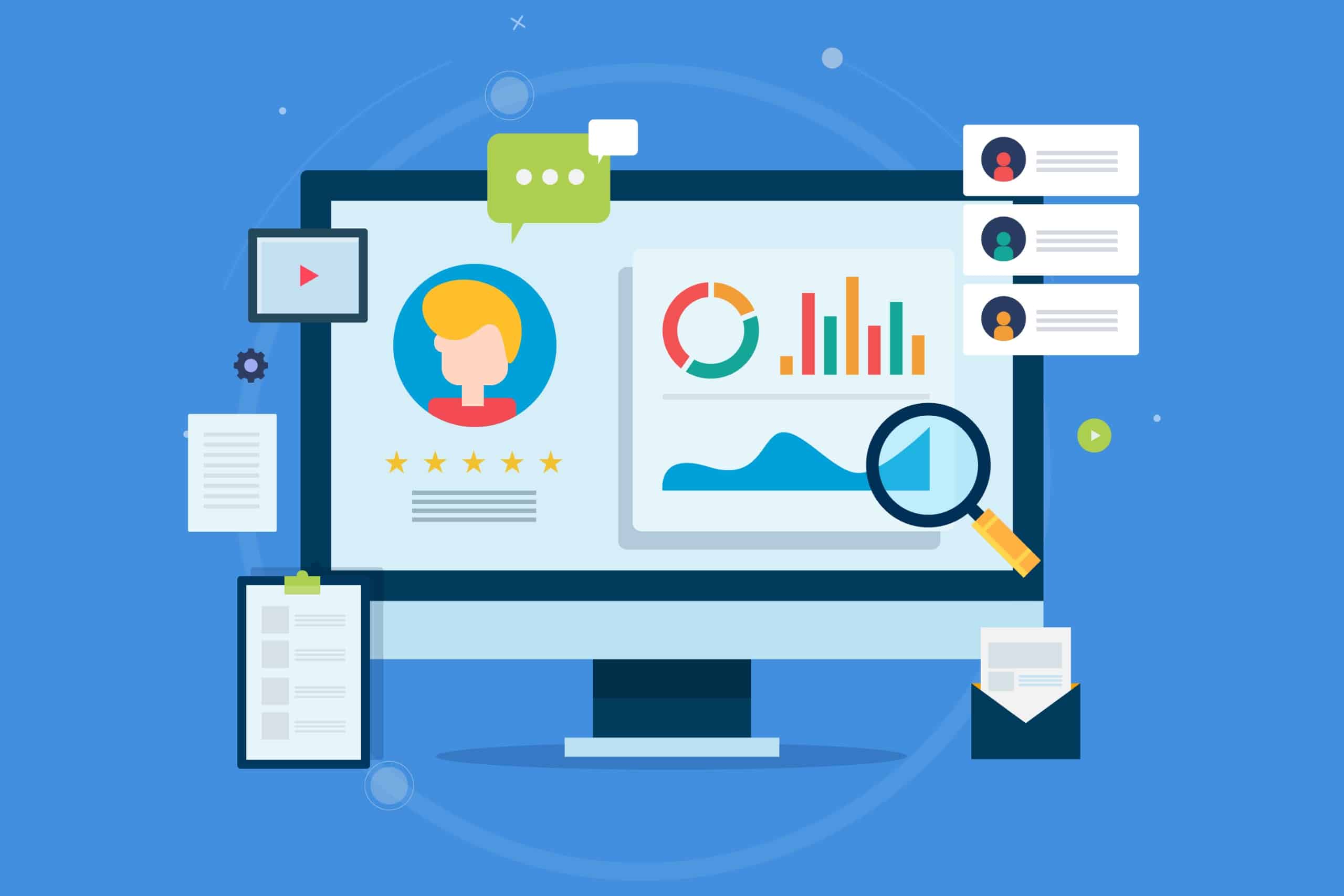
An effective customer relationship management (CRM) strategy is critical to a thriving business in today’s competitive market landscape. CRM is primarily targeted at developing and improving customer relationships, thereby growing revenue and profit by optimizing customer acquisition, retention, and upselling. The fine details of CRM strategy may vary depending on a given company’s sector and customer profile, but they are all the same in that they holistically leverage technological and logistical resources to improve relationships between their customers and the organization’s internal teams.
But what is CRM as it relates to your own business, and how can you begin implementing it?
What is a CRM?
It’s important to know that CRM can refer to the general strategy of managing customer relationships as well as the software that implements and enforces it.
CRM strategy is a plan to develop more effective ways to secure new customers (through new lead pathways) and build stronger ties with existing customers. CRM aims to use data-driven decision-making and insight to optimize carefully tailored interactions that drive growth, loyalty, engagement, and satisfaction. A successful CRM strategy will, therefore, increase revenue and even lower customer acquisition and retention costs.
CRM software is the platform that enables these goals to be obtainable. CRM platforms are offered as a service by various companies, but they are all, in essence, cloud-based digital tools that deal with customer data and how it critically relates to your operations.
In simple terms, CRM software is a digital version of an address book. It is a place to securely store all contact information, including valuable data about your customers, produced through every action and interaction. This data includes:
- Name and contact information (email address, phone number, physical address)
- Date of last interaction and extent of activity
- Number, duration, and nature of visits to your website and engagement with your brand
- Their previous orders and spending history
- Personal details for more authentic interaction (such as interests and hobbies that customers share with your company)
A CRM database is your foundation for operational and financial success. That's because CRM software allows you to store your business' crucial client, lead, and prospect data and use it.
Popular CRM Platforms
A comprehensive CRM platform can transform your company’s existing sales and customer support capability. However, it can be a bit daunting with all the different options available - some come with a full-featured system suitable for large corporations, while others are better tailored for small businesses and startups.
Salesforce
Salesforce was one of the first platforms to be established within the CRM industry and maintained a significant market share due to its wide range of advanced features and customization. It has, perhaps, the most streamlined and social-based performance, but it is also on the more expensive end and takes some time to learn all of its features.
HubSpot
HubSpot CRM is a great choice for smaller companies seeking to dip their toes in the CRM space because it offers impressive features while including a well-rounded free version to test with. While it effectively merges CRM marketing, customer support, and help features, the downside is that it has a significant learning curve and only offers some of the best features at its pricier subscription tiers.
HighLevel
HighLevel CRM is another popular option, mainly for its intuitive, all-in-one platform that combines the power of marketing, customer data, social media, appointment scheduling, and more. It is fully customizable and fairly easy to navigate and use effectively, and with a free trial period, you can utilize their full tool set for a set time to see if it works with your company’s workflow.
How to Maximize Customer Conversion
Regardless of industry, all businesses can use CRM tools to maximize customer conversion. Most CRM tools incorporate “triggers” and “flows.” A trigger is an event that starts a cloud flow, such as receiving an email or an anniversary calendar event. These triggers can begin manually or automatically, scheduled or instantly, creating a “flow” of data and operations leveraging the CRM platform.
As a basic example, you might create a trigger when a customer inputs their details into your company website. This trigger can then be programmed to create a flow of cloud data processing an automatic action such as:
- Contacting the customer
- Storing customer information
- Setting up an appointment
- Notifying someone on the sales team
- Gathering the most recent market data on pricing
- Creating a sample invoice based on their request
The best part about CRM tools is that these triggers and flows can be completely customized and tailored to suit your business's and industry's operations. It helps to engage customers faster, more effectively, and with better outcomes as a baseline - there is no limit beyond your team’s creativity to optimize CRM integration and capabilities into your workflow.
Creating an efficient customer relations strategy is more attainable than ever with CRM, and by increasing the quality and quantity of your customer relationships, your revenue will grow, and costs will drop. Any factors that benefit customer conversion in your sector, such as response time, engagement, and pricing accuracy, can be maximized, and those factors that drop customer conversion, such as poor communication and inefficiency, can be minimized.
The Bottom Line: CRM in Your Hands
Whether you represent a large or small company, CRM can increase revenue - this is true for any industry and any type of client base. The key, however, is understanding these toolsets' full capability and integrating them in the most effective way possible.
Are you ready to boost your company’s revenue? Looking for the best way to improve your customer relationships? Contact our team to learn how CRM might look in your own business model today.




